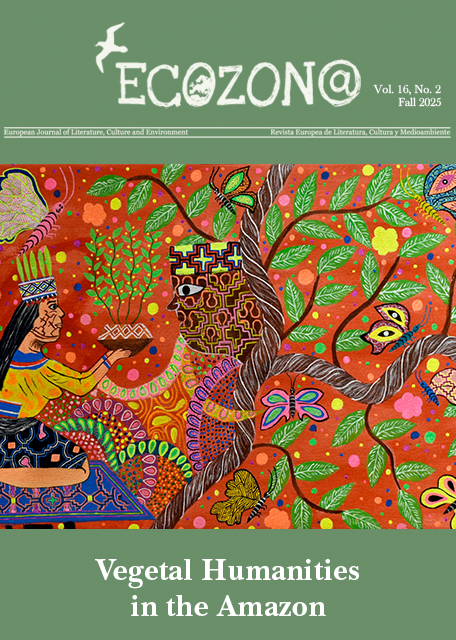Kultivierung der Katastrophe. Untergangsszenarien und Selbstbehauptung in den Literaturen der Schweiz
DOI:
https://doi.org/10.37536/ECOZONA.2012.3.1.449Schlagworte:
Catastrophe, disaster, culture, literature,Abstract
“Catastrophe” is a term of that culture which is threatened by it; the modern understanding of catastrophe dialectically marks the boundary between nature and culture where the term originates. This can be exemplarily shown in the cultural coding of Swiss topography: threatening scenarios have been incorporated into Switzerland’s idyllic image repertoire since the 18th century, and they further developed into a “catastrophe culture” of its own. One looks up at the Alps from all directions not only because they are the symbol of identity, but also because they represent a collective threat and thus a challenge for solidary self-assertion. Thus, catastrophes support the construction of modern, national identity.
Swiss literature contributes to the specific cultivation of catastrophe with various disaster scenarios. However, it also develops counter scenarios, which reflexively question the integrative effect of the catastrophe: It hears the discord in the unity choir and it reflects Switzerland’s alleged bystander role during global catastrophes. Moreover, it opens localness, when it ideologizes itself as “homeland,” to universality by releasing the transgressive energy with which the catastrophe attempts to destroy all political, topographical, medial, and aesthetic boundaries.
Resumen
La "catástrofe" es un concepto de aquella cultura a la que amenaza; el concepto moderno de catástrofe marca dialécticamente la frontera entre naturaleza y cultura en la que se origina. Esto se muestra de manera ejemplar en la codificación cultural de la topografía suiza: desde el siglo dieciocho se han ido incorporando en el repertorio idílico de imágenes de Suiza escenarios de amenaza que han ido evolucionando hacia una verdadera "cultura de la catástrofe". Los Alpes pueden observarse desde todos los ángulos ya que no sólo son el símbolo de identidad, sino que además representan una amenaza colectiva y, así, un desafío para la autoafirmación solidaria. De este modo, las catástrofes tienen un efecto en la formación de una identidad nacional y moderna.
La literatura de Suiza contribuye con variados escenarios del ocaso a este cultivo específico de la catástrofe. No obstante, desarrolla también contraescenarios reales que ponen en duda de manera reflexiva el efecto integrativo de la catástrofe: Oye los tonos disonantes en un coro uniforme y le devuelve a Suiza su presunto papel de espectador en las catástrofes mundiales. Finalmente, abre lo local, cuando se ideologiza como "patria", a lo universal, liberando esa energía transgresiva con la que la catástrofe derrumba toda frontera política, topográfica, medial y estética.
Downloads
Downloads
Zusätzliche Dateien
Veröffentlicht
Ausgabe
Rubrik
Lizenz
Authors who publish with this journal agree to the following terms:
a) Authors retain copyright and grant the journal right of first publication with the work simultaneously licensed under a Creative Commons Attribution License that allows others to share the work with an acknowledgement of the work's authorship and initial publication in this journal (CC BY-NC for articles and CC BY-NC-ND for creative work, unless author requests otherwise.
b) Authors are able to enter into separate, additional contractual arrangements for the non-exclusive distribution of the journal's published version of the work (e.g., post it to an institutional repository or publish it in a book), with an acknowledgement of its initial publication in this journal.
c) Authors are permitted and encouraged to post their work online (e.g., in institutional repositories or on their website) prior to and during the submission process, as it can lead to productive exchanges, as well as earlier and greater citation of published work (See The Effect of Open Access).










